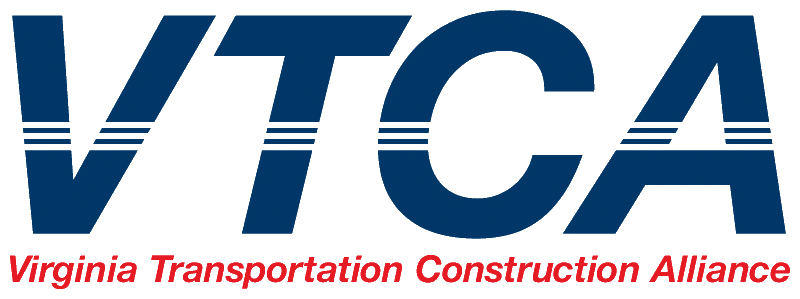VTCA Advocacy: Project Labor Agreements
As a valued member of the Virginia Transportation Construction Alliance (VTCA), you are well aware of our mission to advocate for fair, competitive, and sustainable practices within the transportation construction industry. Over the next several months, VTCA will publish information on how PLA’s will be a threat to VA’s transportation construction firms as well as its Virginia workers.
Today, we address an emerging challenge that has the potential to significantly impact our industry: the increasing push by some Virginia localities to mandate Project Labor Agreements (PLAs) on publicly funded construction projects.
Understanding Project Labor Agreements (PLAs)
Project Labor Agreements - commonly known as PLAs - are more complex than people realize and widely misunderstood. Proponents of PLAs often exploit this lack of knowledge. In particular advocates discuss 1) increased worker wages, 2) faster completion times and 3) end to labor strife. Industry knows, due to Davis-Bacon prevailing wage laws on transportation projects – minus the Union dues and lack of advancement opportunities, front line workers do not receive the increase in wages and no one can point to speedier schedules due to a PLA and finally to market them as a means to ensure “labor peace” and, more cynically, to benefit local construction workers. However, PLAs do neither. While PLAs are contracts that can differ from project to project, most contain the following three typical requirements that undermine fair competition:
- Contractors Must Adhere to Union Collective Bargaining Agreements
PLAs require all employers on a project to follow the terms of union collective bargaining agreements (CBAs), even if the employer is not a party to a CBA. This forces contractors to navigate a complex web of CBA work rules if they choose to participate in a PLA project. As a result, many contractors opt not to work on PLA jobs due to these restrictive conditions. - Workers Are Assigned to Contractors by Union Hiring Halls
Although most PLAs permit construction firms to use a limited number of their existing employees on a project, usually up to five, the majority of workers on a PLA project are assigned to firms by union hiring halls. These hiring halls typically operate on a seniority basis within the union, meaning that workers with the longest union tenure are prioritized for PLA projects. This leaves contractors bidding on PLA jobs with little to no say in selecting their workforce. - Workers Must Contribute to Union-Run Pension and Benefit Plans and Pay Union Dues
PLAs mandate that workers, including those who are not union members, contribute to union-run pension plans (known as multi-employer pension funds) and benefit trusts. Typically, union pension plans require five years of service to vest, which means non-union workers who contribute due to PLAs may receive no benefits. Additionally, workers must pay into union-run benefit funds, even if they prefer to remain on their existing employer’s plan. Finally, PLAs require workers to pay union dues, regardless of whether they wish to join the union.
Why This Matters to You
None of these PLA requirements add value for the public, benefit workers, or effectively prevent work stoppages. Instead, they impose additional costs, limit contractor participation, and restrict workforce flexibility—ultimately making public construction projects more expensive and less efficient.
VTCA’s Response: Forming a Coalition
In response to these concerns, VTCA is actively forming a coalition with industry partners and other stakeholders to advocate against mandated PLAs. Our coalition, Virginians for Fairness in Construction & Employee Protection, seeks to promote fair competition and oppose mandates that would disadvantage a large portion of Virginia’s construction industry.
We encourage you to stay informed and engaged on this issue. Please visit Virginians for Fairness to learn more about our coalition's efforts and how you can contribute to this critical initiative. Your voice and involvement are essential as we work to ensure a fair and competitive environment for all contractors across Virginia.
Thank you for your continued support and commitment to our industry. Together, we can make a difference.
